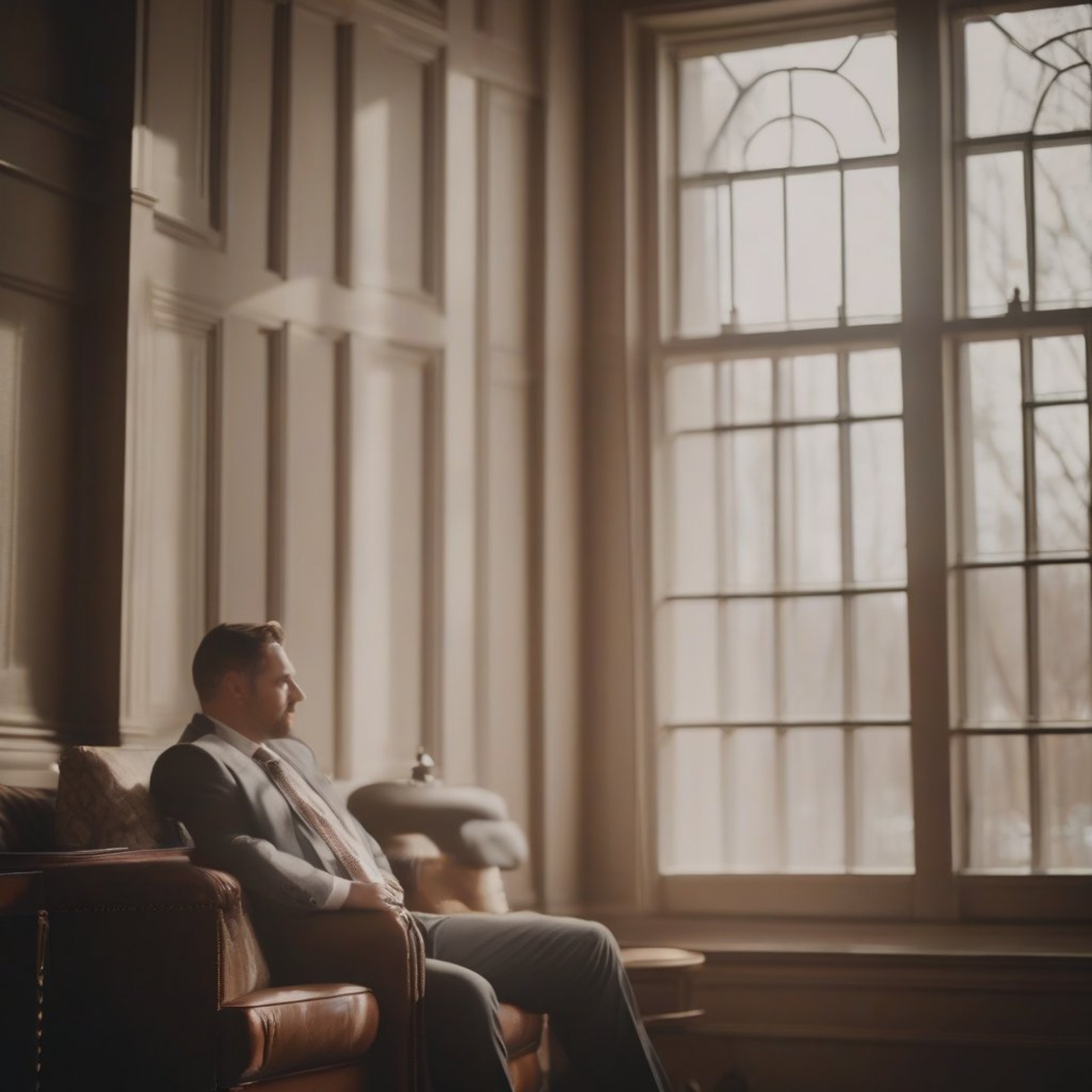Everything You Need To Know About The Involuntary Treatment Laws in Maryland

What you will learn
- Maryland’s Civil Commitment Law outlines the guidelines for involuntary treatment protocols of individuals who meet certain criteria.
- Maryland is one of only three states that does not authorize Assisted Outpatient Treatment (AOT).
- While individuals who involuntarily committed do have temporary restrictions on some of their rights, there are several protections in place to ensure they are treated ethically and fairly while receiving necessary mental health support.
Managing mental health disorders is a necessary but often sensitive topic. While many individuals suffering from certain disorders may be eager to receive the assistance they need, others may be resistant to treatment or unaware of the severity of their condition. In these cases, involuntary treatment laws come into play.
In Maryland, as in other states, these laws, often referred to as involuntary commitment or civil commitment, allow individuals to be placed in psychiatric care or receive other mental health treatments even without their consent. These measures aim to protect individuals who, due to severe mental health issues, might not be able to make informed decisions on their own.
Maryland Civil Commitment Law
Maryland’s framework for addressing involuntary treatment is explained in the Maryland Civil Commitment Law.[1] This law, which falls under Title 10 of the Health-General Article (specifically section 10-632), outlines the state’s management of involuntary mental health treatments. It sets forth the guidelines for evaluating and providing treatment to individuals who, due to mental health disorders, are considered a risk to themselves or others.
The primary goal of this legislation is to balance the safety and welfare of individuals who may not be capable of making informed healthcare decisions due to their mental state while simultaneously upholding their rights. Key legal aspects covered by this law include:
Emergency Petitions
In urgent situations, Maryland’s process for initiating involuntary treatment involves filing an emergency petition.[2] This can be done by anyone and requires submitting a formal application to the District Court. The application should present clear evidence indicating that the person in question poses a danger to themselves or others.
When immediate action is necessary, the court has the authority to issue an emergency directive. This directive mandates that the individual be taken into custody and transported to a hospital for an initial assessment. At the hospital, if the individual is diagnosed with a mental health disorder that represents a threat to themselves or others, they are then transferred to a designated facility for more comprehensive evaluation and treatment.
Following this initial phase, the court requests the hospital to carry out a thorough examination by a licensed physician or certified psychologist. The findings of this examination are crucial as they determine whether the individual qualifies for involuntary commitment and the subsequent planning for long-term treatment.
Involuntary Treatment Criteria
Under the Maryland Civil Commitment Law, specific criteria are established to determine if an individual qualifies for involuntary commitment to mental health treatment.[3] These criteria include:
- Certification by at least two medical professionals, which can be two physicians or a physician and a licensed psychologist. They must confirm that the individual has a mental disorder that presents a danger to themselves or others and that the individual is unable to make informed decisions regarding their care.
- The individual must be clinically diagnosed with an ongoing mental health disorder.
- The severity of the mental condition necessitates treatment in an inpatient setting.
- The individual is not voluntarily seeking treatment on their own.
- There are no other viable options to provide the necessary care and treatment apart from involuntary commitment.
If an individual fulfills all the aforementioned requirements, they may be eligible for involuntary commitment. However, the final decision rests with the court and is contingent on qualified healthcare professionals’ comprehensive evaluation and assessment.
Extension of Rights For Individuals Who Have Been Involuntarily Committed
In Maryland, while involuntary commitment may limit certain freedoms temporarily, there are established safeguards to ensure just treatment and care for these individuals. Key protections include:
- A mandatory review by a trained health professional within 24 hours of being brought to a hospital for involuntary commitment.
- The right of individuals to request a review of their treatment status at any point during their stay.
- A legal entitlement for individuals to have their commitment status reassessed by the courts within ten days of admission. During this period, they have the right to legal representation and a hearing to evaluate the necessity of continued involuntary commitment.
- While there can be justifiable reasons for extending this ten-day period, such as awaiting test results or gathering additional evidence, the courts are restricted from delaying reassessment hearings beyond an additional seven days.
- Individuals are provided with both oral and written notification of their hearing, and this information is recorded in their medical records.
These measures are integral to maintaining a balance between necessary medical intervention and the rights of individuals undergoing involuntary mental health treatment.
Treatment Rights and Age Considerations
During involuntary commitment, individuals are entitled to humane and effective treatment. Mental health professionals must tailor treatments to the individual’s clinical needs. Treatments should always be provided in the least restrictive setting, ensuring the individual’s freedom is not unnecessarily limited.
Additionally, age is crucial in determining the level of care and the extent of an individual’s involvement in treatment decisions. In Maryland, individuals aged 16 and above are recognized as capable of participating actively in their treatment choices. For minors under 18, however, parents or legal guardians have the ultimate authority over significant treatment decisions.
Should medication be required, its necessity is assessed based on the severity of the individual’s condition. In situations where the individual poses a life-threatening risk to themselves or others, medication may be administered even without the individual’s consent.
It’s important to remember that treatment does not have to be intimidating or frightening. The goal is to ensure you or a loved one gets the help you need to restore your health and your potential.
Maryland’s Position on Assisted Outpatient Treatment (AOT)
In Maryland, Assisted Outpatient Treatment (AOT) is a debated topic.[4] AOT refers to a court-mandated program where individuals with significant mental health issues are required to follow specified treatment plans while still living within the community. This approach is typically considered when trying to avoid the involuntary institutionalization of these individuals.
Currently, Maryland remains one of only three states that does not permit AOT programs. Attempts to introduce AOT have been made through various proposed bills, but none have succeeded. The primary reasons for these failures are concerns from legislators regarding potential infringements on individual civil liberties and a lack of conclusive proof regarding the effectiveness of AOT methods.
Ready to get help for you or a loved one? Contact us
To ensure accuracy and quality, every contributor to the Alpas Wellness resource library undergoes a thorough evaluation of their experience, credentials, and achievements prior to publication.
How is the necessity for involuntary commitment assessed in Maryland?
In Maryland, the criterion of being considered a “danger to self or others” is the key factor in deciding involuntary commitment. Essentially, this implies that an individual must be a considerable risk to their own safety or to others, stemming from their mental health condition.
What is the procedure for involuntary commitment in Maryland?
In Maryland, the process for involuntary commitment begins when an individual is identified as meeting the necessary criteria. This individual is first transported to a psychiatric facility for a thorough evaluation. Following this, a legal petition is presented in court. Should the court decide to issue an order for involuntary commitment.
What are the options for those who choose not to take medication during treatment?
Individuals who prefer not to use medication during their treatment have access to a variety of alternative methods. These alternatives include engaging in therapy, participating in counseling sessions, becoming a member of peer support groups, and various other psychosocial treatment methods. However, in the event that an individual’s condition becomes severe and medication is necessary for their well-being, medication can be legally mandated.
Does Maryland offer support programs for individuals with severe mental illness?
Maryland offers a comprehensive selection of support services for individuals dealing with severe mental illness. These services encompass a variety of community-based options, such as housing support, programs to help with employment and educational goals, and peer support groups. For those requiring more focused care, Maryland also has specialized treatment centers dedicated to addressing severe mental health conditions.
What steps can be taken if involuntary commitment is considered necessary for a loved one?
In case of a suspicion that a loved one requires involuntary commitment, contacting the local mental health authority or dialing 911 for immediate help is advisable. Collecting any relevant evidence or information to support this concern is important. Handling these situations with empathy and understanding is essential, as the process can be challenging for everyone involved. Engaging with mental health professionals and communicating your worries openly can help when navigating this process.
[1] FindLaw. (n.d.). Maryland code, health-general § 10-632 | findlaw. Maryland Code, Health-General § 10-632. https://codes.findlaw.com/md/health-general/md-code-health-gen-sect-10-632/
[2] PJ;, J. G. J. (n.d.). The emergency petition process in Maryland. The Bulletin of the American Academy of Psychiatry and the Law. https://pubmed.ncbi.nlm.nih.gov/2289026/#:~:text=Maryland’s%20Emergency%20Petition%20statute%20allows,the%20need%20for%20emergency%20treatment.
[3] Maryland Department of Health Behavioral Health Administration. Maryland.gov Enterprise Agency Template. (n.d.). https://health.maryland.gov/bha/Pages/Index.aspx
[4] Administrator. (n.d.). Aot Landing Page. Treatment Advocacy Center. https://www.treatmentadvocacycenter.org/aot
